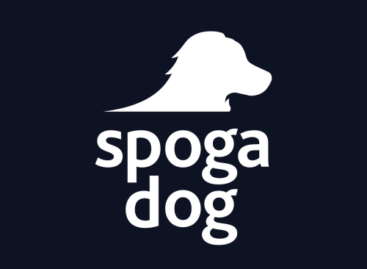Czech Online Grocer Rohlik Ramps Up German Expansion As Rivals Quit
As foreign online grocery delivery rivals exit Germany, Czech Republic-based Rohlik Group is ramping up in Europe’s biggest economy and is on track to break even within the next 12 months, founder and chief executive Tomáš Čupr told Reuters.

Photo: knuspr.de / Facebook
The privately held company, valued at more than $1 billion in 2021, operates under the Knupsr.de brand in Germany and opened in Berlin in April after launching in Munich in 2021 and Frankfurt in 2022.
Germany Expansion
It aims to add a further 15 German cities in the next few years after another fundraising round as it gets closer to a potential IPO, Čupr said in an interview last month at Rohlik’s Prague headquarters.
For 2023, Rohlik turned a profit in the low tens of millions of euros in its home Czech market where it started in 2014. It was also profitable in Hungary last year but the overall group burned around €20 million due to the costs of the German expansion, he said.
The online grocer, which targets customers using quick delivery and a wide range of locally-sourced products, has invested in automating its distribution centres to boost efficiency and offer more delivery options, Čupr said.
‘Break Even’
“On a company level we will break even within the next 12 months including all the German growth,” Čupr said. “Berlin and Frankfurt will consume cash for the next 18 months,” he said, adding Munich was already turning a profit.
“We know how to make money in the CEE region and now we have a model of making Germany profitable,” Čupr added.
Germany Set For Rapid Growth
With only around 2 percent of Germans using online grocery delivery, compared to around 8 percent in Britain, the market offers a mouth-watering opportunity, analysts say.
The market is expected to top $9 billion turnover in 2024 and show annual growth of more than 13 percent to hit $17 billion by 2029, according to data from Statista.
Secondary Service
This has spurred traditional supermarkets like German market leader Edeka, Rewe and Aldi into online, though analysts say established players often see it as a secondary service to build customer loyalty.
The fragmented online delivery market is led by Rewe, which covers most areas in Germany, with less than one billion euros annual revenue. Netherlands-based Picnic follows with less than half a billion of annual revenue, Kai Hudetz, managing director of Germany’s Institute for Retail Research, said.
Norway’s Oda said last year it would pull out of Germany because turnover was not enough to make profits quickly in a tough marketplace. Turkey’s Getir, has announced it is withdrawing from Europe, including Germany almost 18 months after it bought rival Gorillas as it focuses its resources on its home market.
Competing With Discounters
This leaves Picnic and Rohlik as the two likely contenders to battle it out in the sector, analysts say.
The Rohlik approach leaning on local suppliers and local products has resonated with affluent customers in big cities, Hudetz said.
“The success of Rohlik depends on customers willing to pay more while Picnic offers lower prices but only limited delivery windows.”
Responding to the tougher economic climate and inflation of recent years, Rohlik is introducing more lower priced own-label products, Čupr said. They currently account for 10 percent of revenue but that could double over the next two years and eventually account for about a quarter of overall business.
“Of course it costs some margin,” Čupr said. “I can choose not to sell at this price tier but then I would lose customers to the discounters.”
ESM
Related news
New B2B trade fair format for dog supplies launches in Cologne
🎧 Hallgasd a cikket: Lejátszás Szünet Folytatás Leállítás Nyelv: Auto…
Read more >Related news
Pálinka, my love…
🎧 Hallgasd a cikket: Lejátszás Szünet Folytatás Leállítás Nyelv: Auto…
Read more >









